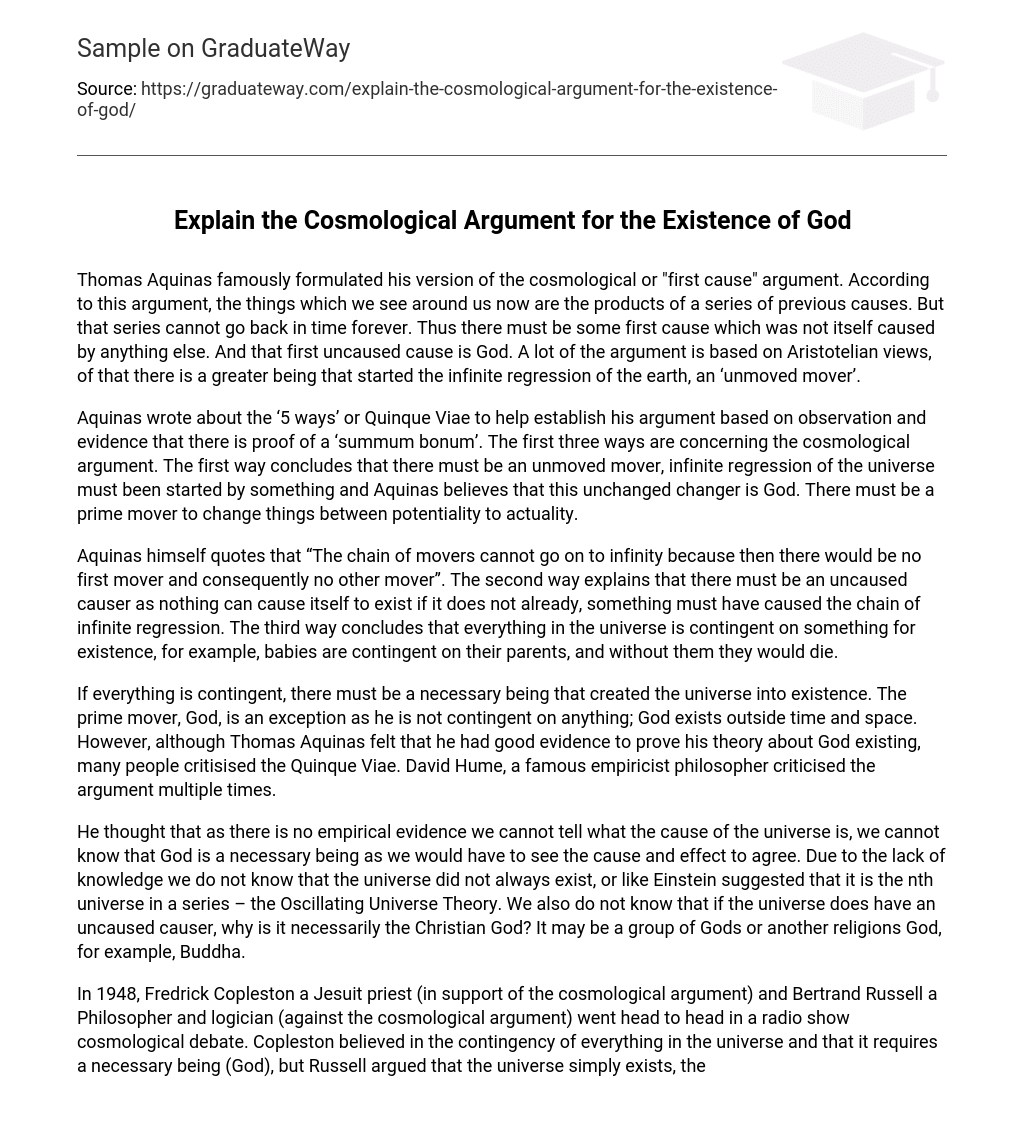Thomas Aquinas is renowned for formulating the cosmological or “first cause” argument, which posits that the phenomena we observe are a consequence of a succession of causes. Nonetheless, this sequence cannot extend eternally into the past. Consequently, there must exist an initial cause that was not prompted by any other factor. This uncaused cause is attributed to God. Much of this argument is founded upon Aristotelian perspectives that assert the existence of a superior entity referred to as the “unmoved mover,” who serves as the catalyst for the infinite progression of occurrences.
Aquinas’s argument for the existence of a ‘summum bonum’ is based on his writings about the ‘5 ways’ or Quinque Viae. The cosmological argument is addressed in the first three ways. According to Aquinas, the first way proves the existence of an unmoved mover. He argues that an infinite regression of the universe must have been initiated by something, and he believes that this unchanging changer is God. Aquinas asserts that there must be a prime mover to actualize potentiality.
Aquinas argues that the chain of movers cannot go on forever, as this would mean there is no initial mover and subsequently no other movers. The second way posits the necessity of an uncaused causer, as nothing can bring itself into existence without being caused by something else. This suggests that something must have caused the endless chain. The third way asserts that everything in the universe relies on something else for its existence. For example, babies depend on their parents; without them, they would not survive.
If everything is contingent, then a necessary being must have created the universe into existence. This necessary being, known as the prime mover or God, is unique because they are not contingent on anything and exist independently of time and space. Despite Thomas Aquinas’ belief in the strength of his evidence for the existence of God through the Quinque Viae, many people, including the famous empiricist philosopher David Hume, have criticized this argument.
Without empirical evidence, it is impossible to determine the cause of the universe. Therefore, we cannot conclude that God is a necessary being since we would need to observe cause and effect. Our lack of knowledge prevents us from knowing if the universe has always existed or if it follows Einstein’s Oscillating Universe Theory, which suggests it is one in a series of universes. Furthermore, we cannot determine why an uncaused causer must be specifically the Christian God; it could potentially be a group of gods or a deity from another religion like Buddha.
In 1948, a radio show featured a cosmological debate between Fredrick Copleston and Bertrand Russell. Copleston, a Jesuit priest, supported the cosmological argument while Russell, a philosopher and logician, opposed it. Copleston argued that everything in the universe is contingent and requires a necessary being (God), while Russell maintained that the universe exists without reason and Christians seeking explanations for everything are unreasonable.
William Lane Craig, an American analytic philosopher, has formulated a cosmological argument rooted in Islamic origins dating back to 850 BCE. According to Craig, the existence of everything that comes into being is necessitated by a cause, and this cause is none other than God. Although Thomas Aquinas presents convincing theories in favor of this argument, it must be acknowledged that Hume and Russell also present logically sound counterarguments. Consequently, proving the existence of God using the cosmological argument proves to be difficult due to these valid criticisms.





